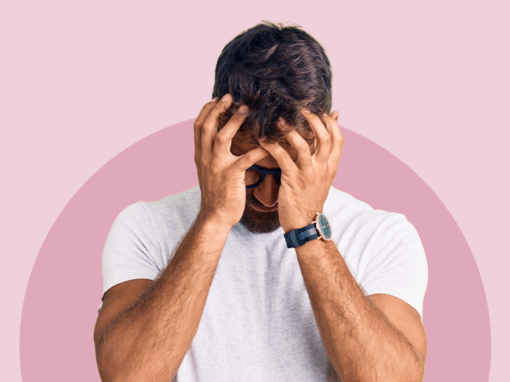Mental health encompasses a wide variety of conditions. Mental health disorders and issues disrupt the mood and cause and obstruct rational thinking and behaviour. The range of mental illnesses includes depression, anxiety, schizophrenia, eating disorders, and other erratic behaviours.
What are the types of mental health concerns?
There are many types of mental health conditions, each one has its own symptoms and causes. The most common types are:
• Anxiety disorder
Anxiety disorder is a mental health condition of extreme anxiety. The worry, anxiety, or fear is so intense that it interferes with the person’s daily activities. Anxiety disorder affects the cognition of the individual. For instance, it makes a person incapable of carrying out daily activities.
There are several types of anxiety disorders. It includes generalised anxiety disorders, illness anxiety disorder, specific phobia, social anxiety disorder, and separation anxiety disorder.
• Depression
Depression is another common mental health condition in Singapore amongst people of all ages. This mood disorder causes persistent sadness and sometimes interferes with daily life activities. Clinical depression can lead to an array of physical and mental health problems. It is treatable with psychological sessions.
• Bipolar disorder
Bipolar disorder is a mental disorder that has an association with mood swings. The person with this disorder suffers from extremely high periods of elation to extremely low periods of depression and sadness.
• Post-traumatic stress disorder
Post traumatic stress disorder, also known as PTSD, is a mental health concern that is triggered by a stressful or traumatic event. The conditions last for weeks, months, or even years. The person who has PTSD may get flashbacks of the triggering event again and again. Other symptoms also include nightmares and severe anxiety. However, this issue is treatable with proper mental health treatment.
• Schizophrenia
Schizophrenia is a serious mental health issue where the person interprets reality differently. The disorder combines an array of symptoms; from hallucinations, delusions, and disorderly thinking. An individual suffering from schizophrenia cannot carry out daily functions. Such people require lifelong treatment. People who have schizophrenia need mental health therapy.
• Eating disorder
The two main types of eating disorder are bulimia and anorexia. Bulimia is characterized by binge-eating followed by purging behavior such as self-induced vomiting or excessive exercise, whereas anorexia is defined by extreme restriction in food intake. Both of these can lead to serious health complications including electrolyte imbalances, heart problems, kidney failure, and even death.
Top 7 causes of mental health issues
1. Childhood abuse
When one experiences extreme childhood trauma, for instance, isolation, physical abuse, molestation, or living with abusive family members, the psychological makeup of the brain changes. Children who grow up in such an atmosphere internalise and externalise anger and become violent and small incidents can cause the trauma to resurface if left without treatment.
2. Peer pressure
Teenagers struggle immensely with their mental health in their formative years. One of the most common causes of their mental stress is peer pressure. Bullying and social isolation can damage self-confidence and development. Such teenagers suffer from feelings of hopelessness and low self-esteem. If they are not taken to treatment, such kids become suicidal.
3. Career-related stress
Pressure to have sustainable careers causes students and young people to suffer from stress. Not meeting expectations can lead to depression and anxiety. People suffer from feelings of hopelessness and have suicidal thoughts and tendencies.
4. Mental illness runs in the family
The mental health causes of many individuals are also hereditary. Mental issues like schizophrenia and dementia can run in the family. If one has a family history of mental health issues, they also have a higher chance of developing the risk.
5. Experiencing stigma
People who have experienced stigma or discrimination suffer from the repercussions of it on a mental level, for groups who experience systemic discrimination, like LGBTQIA+ and differently-abled people or people from ethnically minor communities, suffer from the repercussions of it.
From microaggressions to full-blown hate, the experience can lead to loneliness, worthlessness, and isolation. It can turn into a mental disorder and trigger other health conditions.
6. Losing a loved one
Losing a loved one is one of the most traumatic and life-changing experiences one can go through. Emotions of grief, sadness, and loneliness overcome the person. For some people, such feelings can intensify into depression and anxiety.
The sudden and unexpected death of a loved one can trigger mental health issues in an individual. The shock and confusion of losing a close person can cause distress. However, one can overcome it with constant monitoring, counselling sessions, and grief therapy.
7. Trauma
Any type of trauma can lead to mental health disorders. From war, accidents, death of a loved one, and physical or sexual assault. Trauma has a profound effect on the mental health of a person. It causes post-traumatic disorder, including flashbacks, nightmares, anxiety, and depression. It can make trusting others harder and lead to self-isolation.
Many people who suffer from trauma can resort to substance abuse if they do not get the proper treatment. Trauma can happen from minor causes of mental illness, just as from major events. It can have a serious impact on the mental health of the individual. The intensity of issue is intense in marginalised groups. Trauma can plague the lives of groups of people who suffer from discrimination based on- gender, sexuality, race, and religion.
How to treat mental health
1. Counselling
After deciphering the exact mental health issue, one can look for its cure and treatment. After knowing what causes mental health problems, finding the triggers and their solutions can be done easily in just a matter of time. A psychiatric evaluation can diagnose mental health conditions. With the conditions known, one can seek the required treatment.
2. Group therapy
Psychotherapy is the most effective mental health treatment. In this type of therapy session, you must sit in front of a mental health expert and talk about your journey and issues with your mental health.
The sit-in arrangement helps the individual to deal with stress and increases their focus. There are varieties of talk therapy. It is best for people going through a difficult life phase and not dealing with a serious mental health issue.
3. Prescription medicine
It is another popular treatment method. The patients prefer the medicines in the prescription since they alter the brain chemically and control the person’s mood. The medicine does not cure the symptoms, but they help to improve the symptoms. Along with therapy and counselling, medicine proves effective.
4. Eye Movement and Desensitization & Reprocessing Therapy (EMDR)
For individuals suffering from psychological stress, EMDR therapy is highly beneficial. It is highly effective in treating trauma, especially post-traumatic stress disorder. The process involves moving the eyes in a certain way as one processes their traumatic memories. The goal of the treatment is to help one heal from trauma and other distressing events.
5. Support groups
Support groups help one to gain insight into their traumatic situation. The friendships, support, and resources help one receive tips on dealing with their situation. The group addresses feelings of isolation and tries to combat them.
6. Hospitalisation
It is the last step in the treatment process. If the situation is bad, one must be admitted to the hospital. They need to receive therapy in a long-term program to regain their mental stability.
Conclusion
It is difficult to ask for help in such cases, but it is equally difficult to diagnose them if one does not openly speak about their feelings. Therefore, we should create an atmosphere where one can feel free to discuss their mental health. One can curb and even overcome the symptoms with proper treatment.
FAQs about mental health illness
1. Can mental health problems be cured?
Yes. When one figures out the cause and the triggers of their mental illness, they can find a cure. They must go to a professional to receive the diagnosis.
2. What to do if someone has a mental illness?
The first thing the person should do is contact a mental health professional. The professional will decipher the cause of the issue and provide an eventual remedy.
3. What happens if you ignore your mental health?
Ignoring mental illness can lead to disability, incoherence, detachment from reality, and chronic depression. It can also lead to homelessness, substance abuse, and poor quality of life. However, these are on a case-by-case basis.
4. Can medication help to treat mental illness?
The diagnoses can tell what causes mental illness, and then with medication, one can find respite from the effects and the symptoms.
This article is for informational purposes only and does not constitute medical advice. The information contained herein is not a substitute for and should never be relied upon for professional medical advice. Book a consultation with andSons medical team to learn more about healthcare treatments here.


